TSK ENGINEERING (THAILAND) CO., LTD.
-
Home
- Success Stories
- TSK ENGINEERING (THAILAND) CO., LTD.


Digitization of simple tasks to improve the efficiency of monthly operations
and realize flexible work styles for all employees

TSK ENGINEERING (THAILAND) CO., LTD., a subsidiary of Tsukishima Holdings, has been engaged in plant design and EPC business for chemicals, food, and pharmaceuticals in Thailand since 1993. In the wake of the COVID pandemic, the company is working to diversify work styles and speed up payment processing. We asked the company about the effects of introducing Bill One and its future outlook.
Objectives
- Digitization of internal circulars
- Improve efficiency and sophistication of accounting operations
- Establishment of a database that can be accessed from any location
Challenges
- Delay in approval and lost during internal circulation of internal circulars
- Erroneous and duplicate data entry
- Inflexible work style at accounting department
Outcomes
- Streamlining and centralizing monthly operations
- Efficiency improvement in matching of purchase order and invoice
- Realization of flexible work styles
Bill One enables flexible work style
and expedite payment processing
[ Interviewees ]
Accounting Department / Accounting Specialist Mr. Morihito Imamura
Accounting Department / Ms. Rungtiwa Klindokmai
Accounting Department / Ms. Pranpriya Panpiti
Procurement Section Engineering Department / Manager
Ms. Wannarat Kaewhirun
E&I Section Procurement Section / Manager Mr. Phansin Yuanghiran
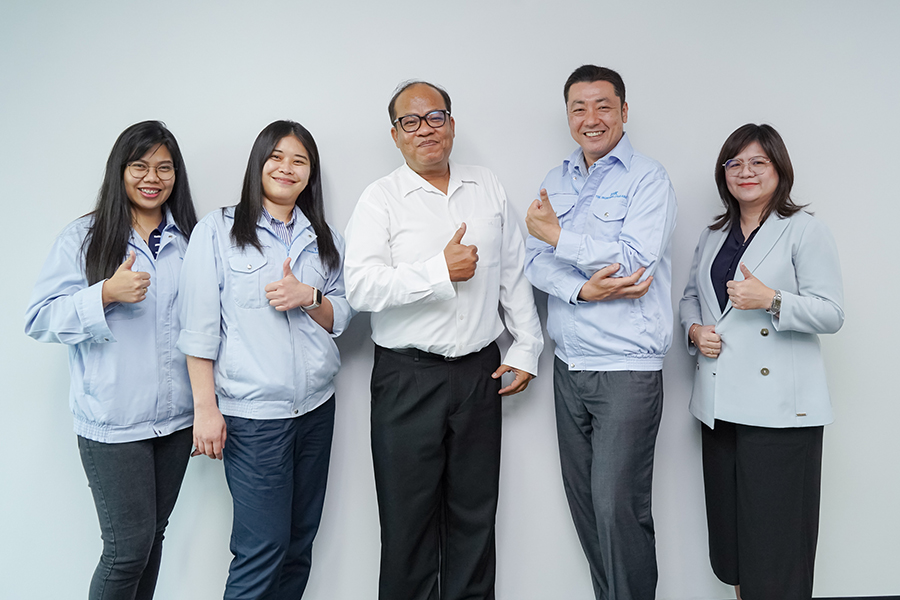
Accounting staff were spending a lot of time and effort on multiple entries into the system, and lost documents were also a problem.
Business Overview
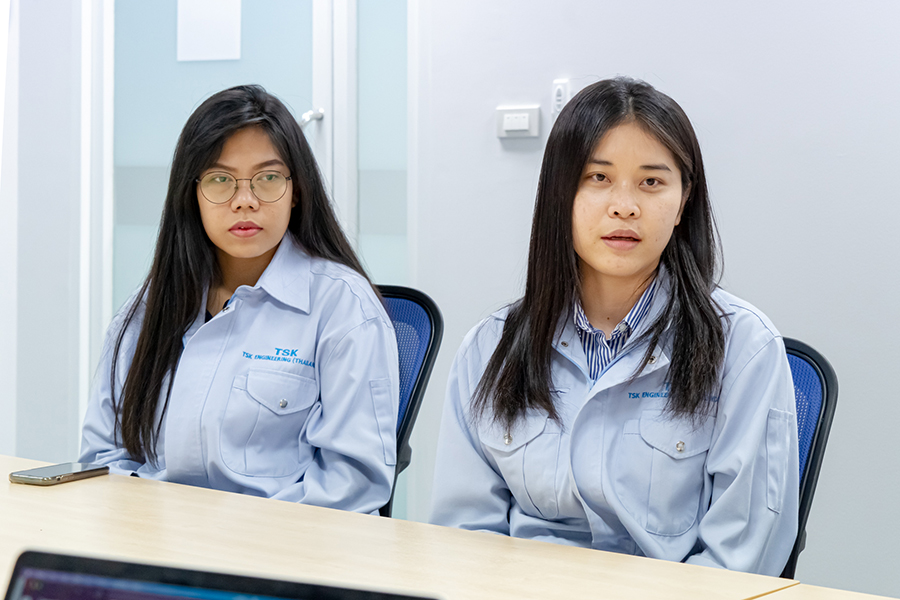
Ms. Rungtiwa Klindokmai (R)
Since our establishment in 1993, as the Thai subsidiary of Tsukishima Holdings Co., Ltd., we have been supporting our customers in manufacturing business who are expanding their business to Thailand and ASEAN countries. In addition to the sugar refining business that has been continuing since our founding, we are currently focusing on the EPC business related to the construction of plants for chemicals, foods, pharmaceuticals, etc., and the maintenance business. In addition, as an authorized distributor in Thailand for Primix, a manufacturer of highspeed agitators and emulsifiers for the Tsukishima Group, we can provide not only products but also a wide range of services including installation and maintenance. From a customer-first perspective, we have Japanese staff in key locations and are ready to provide Japanese-quality plants at Thai prices.
Challenges before implementing Bill One
Accounting Department: At our company, which handles various types of plant construction and industrial machinery, a huge number of paperbased documents were exchanged with our business partners, starting with quotations prepared by vendors, purchase orders from us, delivery notes and invoices that arrived as soon as the product was delivered. During busy seasons, vendor invoices would arrive at the office every 10 minutes, causing the accounting staff to interrupt their work each time, leading to a loss of concentration.
Upon receiving an invoice, the accounting staff would manually input the content into the accounting system and Internet banking each time, resulting in potential errors and duplicate entries, which consumed time and effort. In addition, since documents were circulated on paper for internal approval, it was difficult to track where approvals were stopped and documents were sometimes lost, which was also seen as a problem within the company.
We came across Bill One while searching for a new tool to enable flexible work style and expedite payment processing.
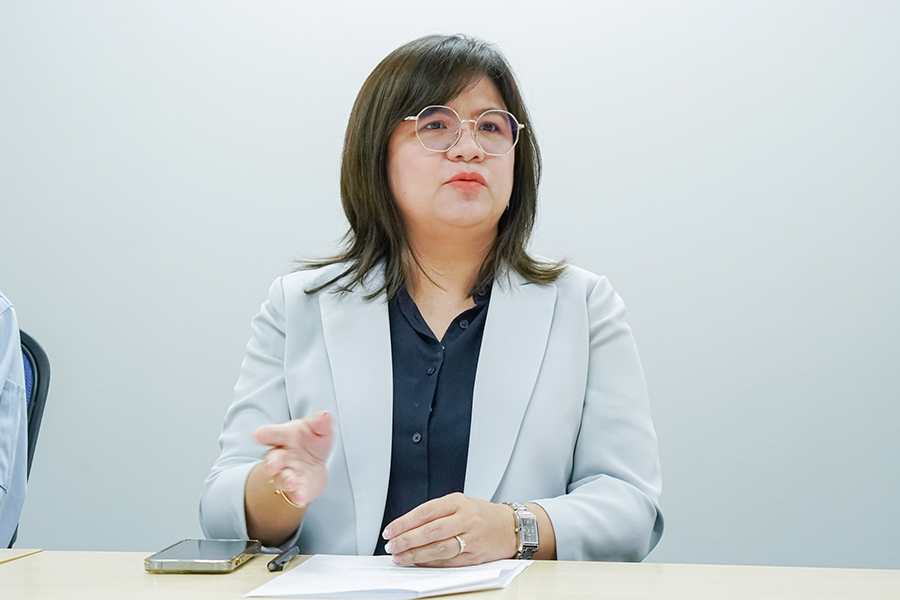
The trigger for the implementation
Accounting Department: The major trigger was the telecommuting that started during the COVID pandemic.
Because of the paperbased management system, only the accounting staff had to come to the office even when telecommuting started. Documents that needed approval were scanned and sent to the telecommuters, which was not only inconvenient but also caused delays in approvals. While searching for a new tool to realize a flexible work style and expedite payment processing, we came across Bill One.
Confusion at implementation
Accounting Department: General Affairs & Accounting Department: As this was a major system change for the first time since the foundation of the company, initially, there were concerns about whether the employees would accept it. However, contrary to expectations, the process went very smoothly. This may be due to the fact that our business is not yet on the scale of a large corporation, but we think it may also be due to the Thai people’s love of new things and their curiosity. Since we have a relatively young staff members, it was easy for them to accept IT equipment and systems, and they actively adopted Bill One and promoted its use on their own.
Procurement Section: When we actually started using the system, we had a hard time getting vendors to understand how it works. The process is simply to change the billing address, but because the vendors are unfamiliar with Bill One, we received many questions such as “What is Bill One?”, “Where is it located?”, and “What is the process for transactions?” The Bill One team was very helpful in providing explanatory materials, and the vendors listened to our explanations with great sincerity. The cooperation of those around us was great in promoting the use of the system.
It used to take about 2 minutes to register one transaction, but now 20 transactions can be completed in less than a minute.
Outcomes after implementation
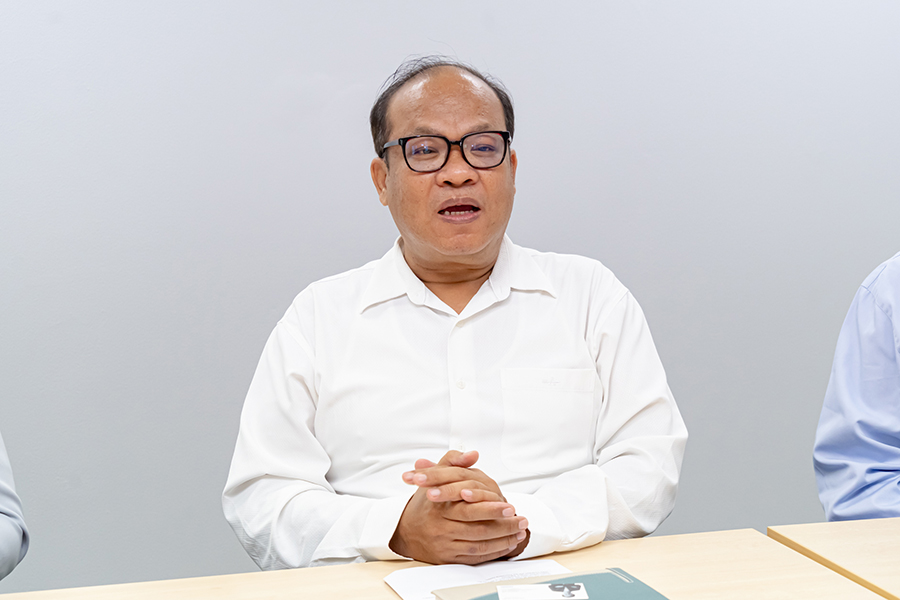
Accounting Department: Bill One handles the receipt of invoices on behalf of us, so accounting staff no longer receive them at the office and can concentrate on their own tasks. The information that used to be manually entered before has been digitized based on the invoice information on Bill One to create journal data, which is output as a CSV file and imported into the accounting system. This is much more efficient than manually entering the data individually. Before the implementation of the system, it took about two minutes to register one transaction, but now even 20 transactions can be completed in less than one minute. The approval process has been streamlined as well, from circulating paper documents to simply pressing the approval button on Bill One, which has also enhanced compliance. Unlike countries with advanced Law on Book and Record Keeping through Electronic Methods, filing of original invoices is still required by law in Thailand. For this reason, we have not yet begun full-scale operations, but we expect that once the law is revised and the reliance on paper originals is reduced, functions such as invoice uploading through vendor accounts will contribute to further productivity improvements. The duplicate data detection alert function is a standard feature of the system, and since communication for each invoice data will be possible within the system, invoices will be processed more efficiently than in the current state of operation, which is limited to the scanning center.
Procurement Section: In the past, the system was different for each flow, but by being able to centralize in Bill One, information sharing within the company has become smoother. In the procurement process, we used to have to ask the accounting department each time we wanted to check invoices or retrieve historical data. Now, anyone can easily retrieve the data they want by simply searching for a name, order number, or date on Bill One. It automatically notifies us, so we can easily track the status of each invoice as it circulates and the history of confirmations.
Engineering Section: In addition to the back-office operations, engineers who draw blueprints find it extremely useful because with just an internet connection, they can circulate documents anytime, anywhere without the risk of losing paperwork. As we continue to implement and utilize Bill One, each department’s process improvements will help employees better understand its usefulness.
We look forward to further accelerating our monthly closing process through automatic reconciliation of purchase orders and invoice information.
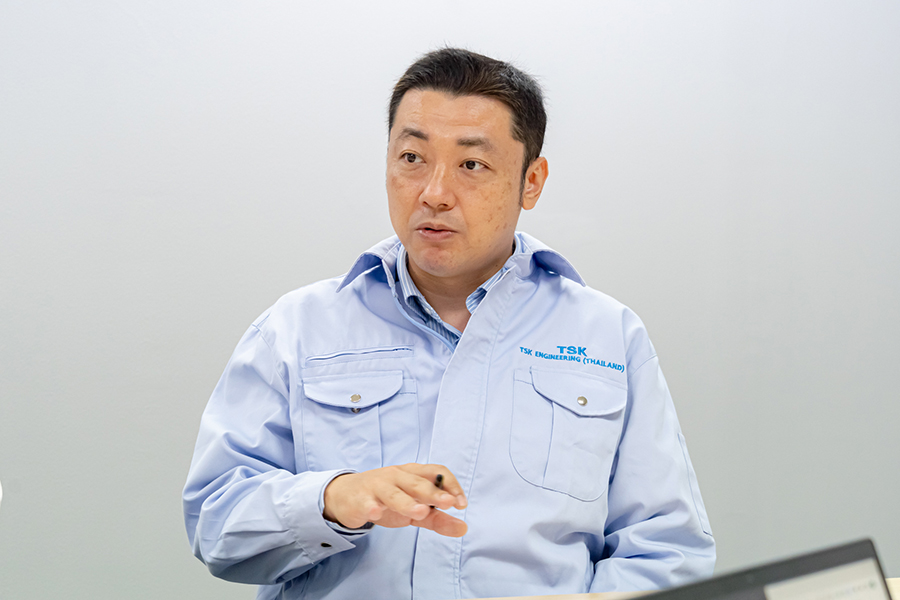
The secondary outcomes resulting from the implementation
Accounting Department: The implementation of Bill One has dramatically changed the way telecommuting works. In Thailand, there had already been partial remote work arrangements in place due to events such as floods and deteriorating security. However, employees still had to come to the office to receive mail or sometimes take certain documents home for work, highlighting a lack of flexibility in the system. After the COVID pandemic, a selective telecommuting system was introduced, allowing employees to work from home for the remainder of the week as long as they come to work a specified number of days each week. With the implementation of Bill One, the need for physical handling of paper documents, which previously bound employees to the office, has been greatly reduced. As a result, concerns about work stagnation during the encouragement of telecommuting have been eliminated, allowing for a more flexible work style than in the past.
Future prospects for utilizing Bill One
Accounting Department: We would like to utilize invoice data for other systems as well. Currently, we are in the process of reconciling with purchasing information, and if we can automatically match purchase orders and invoice information, we can expect further acceleration of the monthly closing process. We will continue to digitize simple tasks and reduce manual work, aiming to further improve productivity.
※This article was created in March 2024